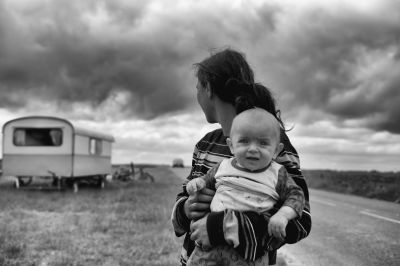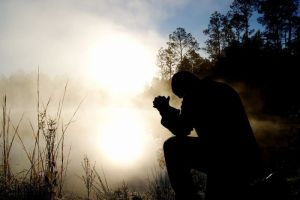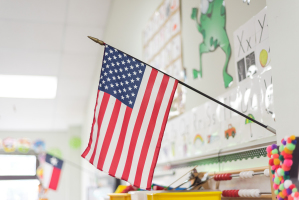Isolation – the hidden killer for vulnerable families

Our days are saturated with brief points of contact that happen to us almost without thought, such as chatting with a friend walking down the street or picking up a coffee made by your local barista. These moments are much more important than we give them credit for, as each offers connection with the world around us.
Recently, the U.S. Surgeon General declared loneliness as “the most prominent mental health challenge of our time.” Isolation and loneliness can lead to parents and families feeling intensely overwhelmed, like being in a room where the walls are caving in and gasping for air.
One of the biggest factors that can make or break the ability of families to deal with stressors and develop resilience is a meaningful, trusted connection. We can’t underestimate or undervalue its power — it’s part of what heals trauma and helps people endure challenging circumstances. Over the last decade of working with Bethany Christian Services, I’ve been able to witness the power that supportive relationships can have in the lives of our staff and vulnerable families.
When families are facing instability, we often look to external factors to explain or judge what’s happening. It’s easier to look at what we can see: whether illness, job insecurity, homelessness, or something else, and use that to explain why a parent may struggle to care for themselves and their child.
Yet, isolation is often the hidden killer.
When parents or caregivers face tremendous difficulty without a strong community of support surrounding them, one life challenge can turn into a seemingly unsurmountable avalanche. We were created to connect and feel belonging because life’s challenges are too much to bear alone.
Programs like Safe Families for Children seek to create a sense of connection and belonging for families so they feel seen, heard, and supported, as they are offered a compassionate community. At Bethany, we have the privilege of connecting families facing crisis to a community of volunteers ready to widen their circle of family. Through intentional connection, we experience belonging to each other.
This way of thinking and living reminds me of the Japanese art of Kintsugi — a beautiful picture of what it looks like when we take the time and care to flourish. You might have seen pictures of Kintsugi pottery in art history class: beautiful Japanese vases with gold seams filling in cracks in the ceramic. The art form is framed around the idea that by embracing something that has been through a hard time, rather than casting it off, you end up with a stronger, more beautiful piece of art than there was before.
It can be a stunning reminder of the redemption we have through Jesus despite our brokenness; we know from scripture that none of us is worthy and yet God extends grace and unconditional love and kinship to all.
When we’re truly shouldering someone’s burden with them, that presence lifts the weight. When raising my own children, my friends or family walked in step with me through difficulties numerous times. I could not have sustained the heaviness of seasons of parenting without them. Standing in the margins with vulnerable families and practicing a posture of awe instead of judgment creates an opportunity for the cracks in all of us to heal and be restored.
Every day, we can resolve to pay attention to moments where we can connect with others. Offering Jesus’ kindness to a neighbor or a mom struggling in the checkout line at the grocery store with children in tow is a simple way to demonstrate “I am with you, I see you like God does, you are not alone.”
Following God’s Word in Galatians 6:2, “shoulder each other’s burdens,” we can break the cycle of isolation and loneliness, lightening the load of life’s challenges, to keep families safe, loved, and connected.
Julie Paine is the Vice President of Domestic Programs at Bethany Christian Services.




























